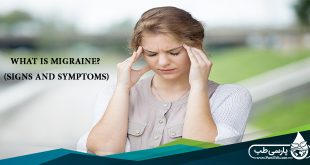What Are Anxiety Disorders?
Everyone feels anxious now and then. It’s a normal emotion. Many people feel nervous when faced with a problem at work, before taking a test, or making an important decision. Anxiety disorders are different and they can cause such distress that it interferes with your ability to lead a normal life. This type of disorder is a serious mental illness. For people who have one, worry and fear are constant and overwhelming, and can be disabling. But with treatment, many people can manage those feelings and get back to a fulfilling life.
What Are the Types of Anxiety Disorders?
There are several kinds, including:
Panic disorder: People with this condition have feelings of terror that strike suddenly and repeatedly with no warning. Other symptoms of a panic attack include sweating, chest pain, palpitations (unusually strong or irregular heartbeats), and a feeling of choking. It can feel like you’re having a heart attack or “going crazy.”
Social anxiety disorder: Also called social phobia, this involves overwhelming worry and self-consciousness about everyday social situations. The worry often centers on a fear of being judged by others, or behaving in a way that might cause embarrassment or lead to ridicule.
Specific phobias: These are intense fears of a specific object or situation, such as heights or flying. The level of fear is usually inappropriate to the situation and may cause you to avoid common, everyday situations.
Generalized anxiety disorder: This is excessive, unrealistic worry and tension, even if there’s little or nothing to provoke the anxiety.
What Are the Symptoms of Anxiety Disorders?
It depends on the type of anxiety disorder, but general symptoms include:
- Feelings of panic, fear, and uneasiness
- Problems sleeping
- Cold or sweaty hands or feet
- Shortness of breath
- Heart palpitations
- Not being able to be still and calm
- Dry mouth
- Numbness or tingling in the hands or feet
- Nausea
- Muscle tension
- Dizziness
What Are the Causes of Anxiety Disorders?
The exact cause of anxiety disorders is unknown, but anxiety disorders – like other forms of mental illness – are not the result of personal weakness, a character flaw, or poor upbringing. As scientists continue their research on mental illness, it is becoming clear that many of these disorders are caused by a combination of factors, including changes in the brain and environmental stress.
What Are the Causes of Anxiety Disorders?
Like other brain illnesses, anxiety disorders may be caused by problems in the functioning of brain circuits that regulate fear and other emotions. Studies have shown that severe or long-lasting stress can change the way nerve cells within these circuits transmit information from one region of the brain to another. Other studies have shown that people with certain anxiety disorders have changes in certain brain structures that control memories linked with strong emotions. In addition, studies have shown that anxiety disorders can run in families, which means that they can at least partly be inherited from one or both parents, similar to the genetic risk for heart disease or cancer. Moreover, certain environmental factors – such as a trauma or significant event – may trigger an anxiety disorder in people who have an inherited susceptibility to developing the disorder.
How Are Anxiety Disorders Diagnosed?
If symptoms of an anxiety disorder are present, the doctor will begin an evaluation by asking you questions about your medical history and performing a physical exam. Although there are no lab tests to specifically diagnose anxiety disorders, the doctor may use various tests to look for other medical illness as the cause of the symptoms.
If no other medical illness is found, you may be referred to a psychiatrist, psychologist, or another mental health professional , who is specially trained to diagnose and treat mental illnesses. Psychiatrists and psychologists use specially designed interview and assessment tools to evaluate a person for an anxiety disorder.
The doctor bases his or her diagnosis on the patient’s report of the intensity and duration of symptoms – including any problems with daily functioning caused by the symptoms – and the doctor’s observation of the patient’s attitude and behavior. The doctor then determines if the patient’s symptoms and degree of dysfunction indicate a specific anxiety disorder.
How Are Anxiety Disorders Treated?
Fortunately, much progress has been made in the last two decades in the treatment of people with mental illnesses, including anxiety disorders. Although the exact treatment approach depends on the type of disorder, one or a combination of the following therapies may be used for most anxiety disorders:
- Medication: Drugs used to reduce the symptoms of anxiety disorders include many antidepressants, certain anticonvulsant medicines and low-dose antipsychotics, and other anxiety-reducing drugs.
- Psychotherapy: Psychotherapy (a type of counseling) addresses the emotional response to mental illness. It is a process in which trained mental health professionals help people by talking through strategies for understanding and dealing with their disorder.
- Cognitive-behavioral therapy: This is a particular type of psychotherapy in which the person learns to recognize and change thought patterns and behaviors that lead to troublesome feelings.
- Dietary and lifestyle changes
- Relaxation therapy
Can Anxiety Disorders Be Prevented?
Anxiety disorders cannot be prevented; however, there are some things you can do to control or lessen symptoms:
- Stop or reduce consumption of products that contain caffeine, such as coffee, tea, cola, energy drinks, and chocolate.
- Ask your doctor or pharmacist before taking any over-the-counter medicines or herbal remedies. Many contain chemicals that can increase anxiety symptoms.
- Seek counseling and support if you start to regularly feel anxious with no apparent cause.
Herbal treatment by “Parsiteb” co:
It is suggested to use “Paprika 9” or “Psycho digest” in order to be relax and treat anxiety and depression. “Psycho digest” is stronger than “Paprika 9”. These herbal combinations are effective for different levels of anxiety, depression, obsession and delusion. Also “Psycho digest” is able to encourage functions of vital organs of the body such as the brain, heart, liver, uterus, ovaries and testicles.
References:
www.parsiteb.com
 Parsi Teb Physical and Mental Health Journal
Parsi Teb Physical and Mental Health Journal 



